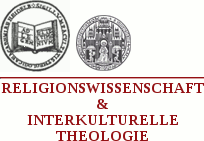Transculturality and global religious history. A religious studies perspective (Bergunder)
| Was | Aktuelles |
|---|---|
| Wann |
16.01.2014 von 16:00 bis 18:00 |
| Wo | Karl Jaspers Centre, Voßstraße 2, Building 4400, Room 212, 69115 Heidelberg |
| Termin zu Ihrem Kalendar hinzufügen |
|
Jour Fixe (The Jour Fixe is organised by the four Research Areas of the Cluster of Excellence “Asia and Europe in a Global Context” at Heidelberg University. Graphics designed by the RA Coordinators.)
Michael Bergunder (Heidelberg): Transculturality and global religious history. A religious studies perspective
Abstract: The historiography of contemporary religions is increasingly shaped by concerns and approaches specific to global history. This is in part due to the contention—articulated classically in Edward Said's Orientalism (1978)—that the nineteenth- and twentieth-century colonialism globalized "western" knowledge and imposed it upon societies that were colonized or lived under the threat of colonization. Although Said did not focus on the role of the colonized, this became the primary concern of postcolonial studies, whose object is the ongoing re-signification of "western" knowledge in colonial and postcolonial societies. Moreover, because this whole process has been multidirectional, a global history of religion should be understood as consisting of "entangled histories," in which all the entities involved are also, at least in part, products of this entanglement.
However, a global history approach still leaves many crucial questions unanswered, especially the conceptualization of "western" knowledge. The "West" has become detached from its geographical denotation and has been used as a metaphor invested with meanings well beyond the spatial. As a result, for instance, "western" knowledge, as a de-spatialized marker in regional identity formation, could be simultaneously propagated as "universal" knowledge. In religious studies, it is quite common to speak of a "western concept of religion" that has become globalized since the 19th century. However, such a narrative would leave little room for an "entangled" global history. The paper will explore new theoretical perspectives on the meaning of "western" knowledge that include a fresh look at the three key concepts, namely transculturality, comparison and translation.
Chair: Birgit Kellner (Heidelberg)

